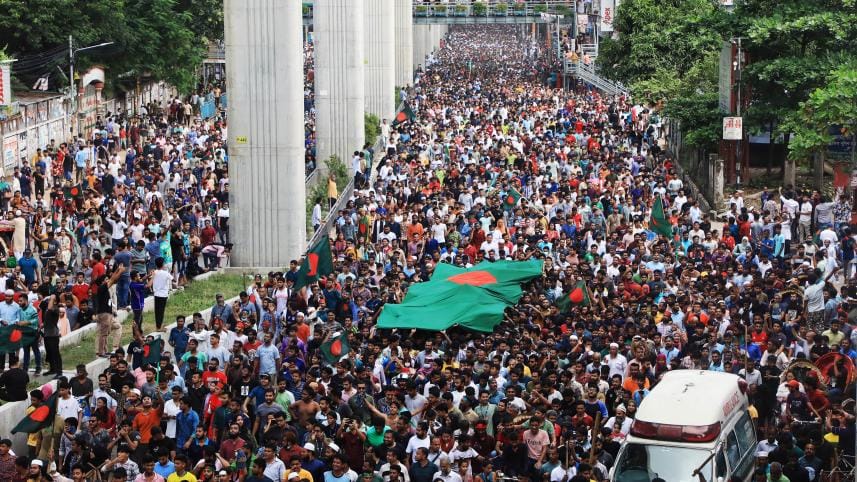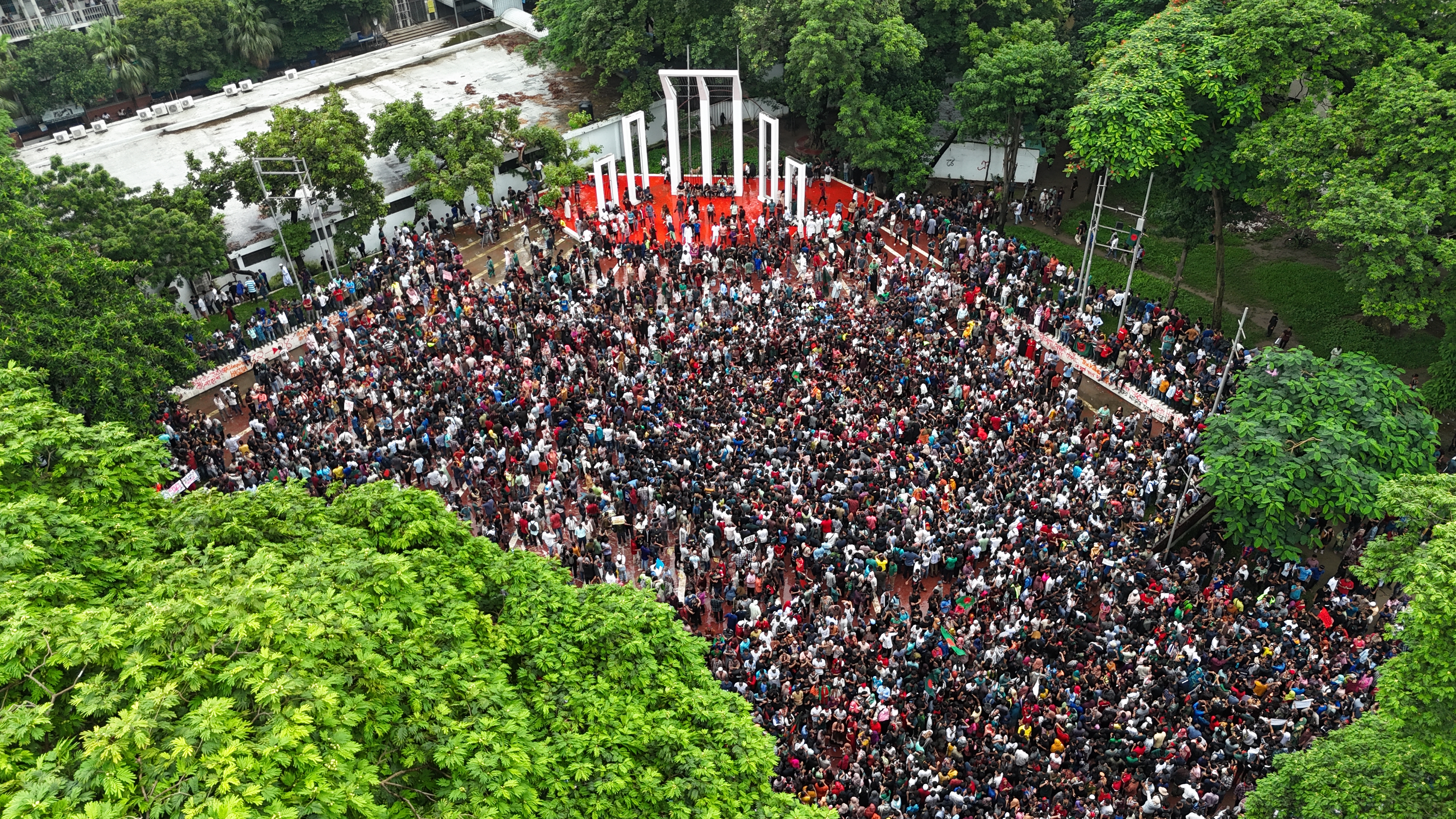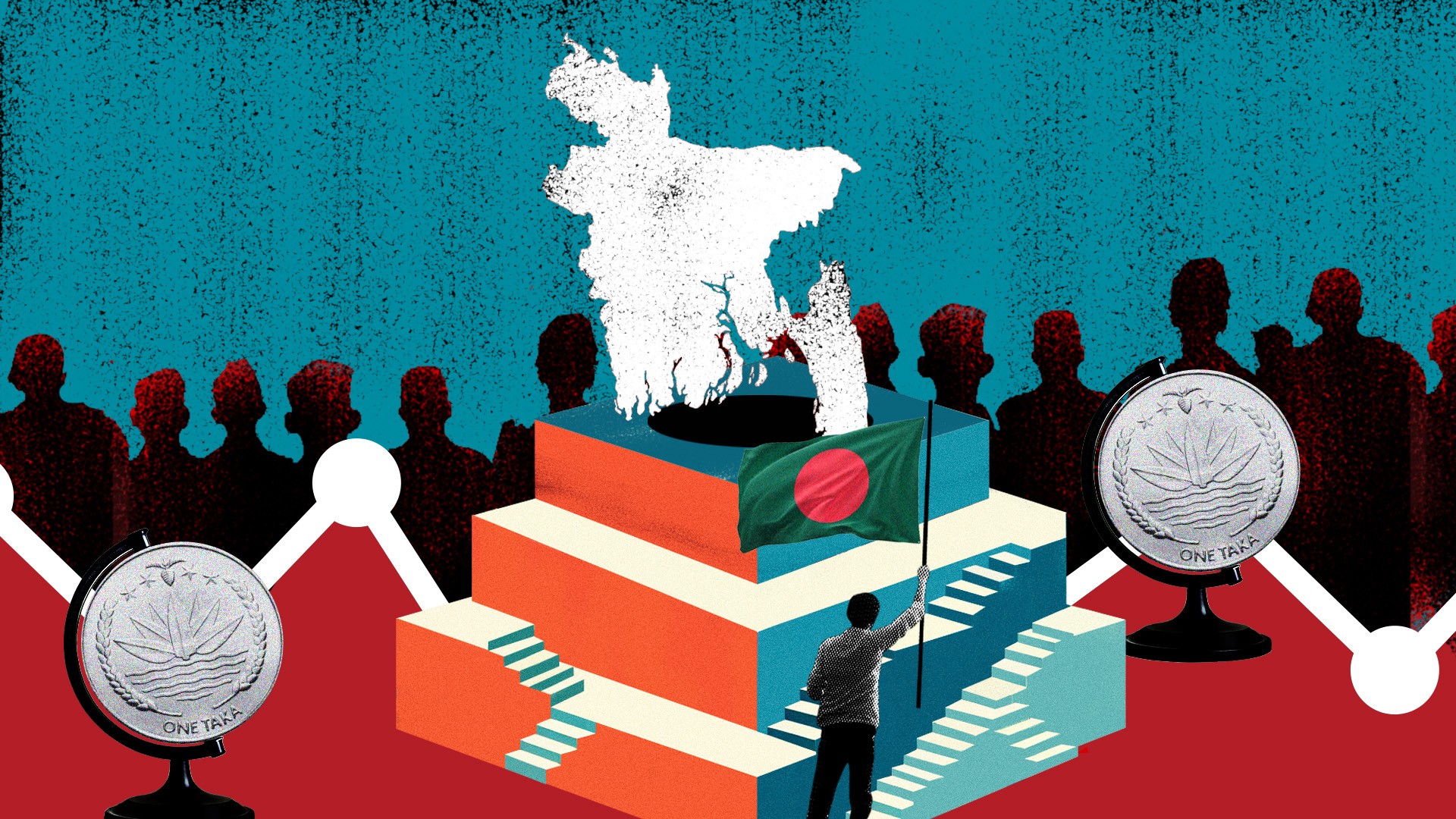Symbolism isn’t enough: What Bangladesh can and must do now

Twelve months after the uprising that upended Bangladesh's political landscape, the interim government (IG) has successfully sustained a fragile stability—steady food prices, a functioning budget, a stabilised foreign reserve, etc. We may recall that, during its first 100 days, the government made symbolic strides that hinted at a new direction. From stabilising central bank reserves to enabling peaceful religious celebrations and reopening universities, these gestures signalled a break from fear-based governance. Equally significant was the return of robust criticism across media and social platforms, suggesting that democratic discourse had regained public space.
On the diplomatic front, a former diplomat emphasised that "the government managed to maintain a coalition that included student leaders, reformist bureaucrats, and mainstream political actors while still keeping lines open to key international players." An expatriate pointed to dialogues with China and Pakistan as part of an effort to diversify Bangladesh's diplomatic options.
Prof Yunus's August 2024 speech struck a hopeful chord: transparency, justice, and national healing. The symbolic steps hinted at a new trajectory.
Symbolism, however, alone cannot sustain legitimacy, especially in a nation that rose to transform after waiting for meaningful change for so long. People did not expect quick fixes, but many hoped Prof Yunus would serve not merely as an international figurehead, but as a principled pragmatist—capable of translating vision into action for a new Bangladesh. A year later, for many, the outcomes have fallen short of those expectations.
One of the biggest failures, several observers agreed, was the IG's inability to deliver a clear, timely, and actionable agenda. "They needed to speak to the nation—not with ambiguity, but with urgency and honesty—about the state of collapse they inherited," said one entrepreneur. That early silence allowed rumours to fester, opposing forces to regroup, and public expectations to spiral.
Admittedly, the IG inherited a deeply compromised bureaucracy. "The fascist players are everywhere—from academia to the courts," said a senior civil servant. The government's quiet resistance has slowed down even the most well-intended reforms. "Despite scattered initiatives—from repatriation of siphoned money to anti-graft investigations—there has been little public evidence of breakthrough reforms," said another person.
Justice, too, has faltered. "The IG should've gone for something like a Nuremberg-style tribunal—quick, symbolic, and decisive," lamented a retired academic. Instead, the system allowed many perpetrators to fade into bureaucratic anonymity. A leading physician echoed this frustration, observing that the momentum of the uprising was squandered when its youth leaders were "absorbed into a king's party framework," derailing their credibility and weakening the movement's long-term prospects. The failure to adequately address the needs of injured revolutionaries and victims' families remains a moral blemish. "We cannot build a new Bangladesh by forgetting those who bled for it," said one technocrat.
Leadership style has also drawn pointed critiques. "Dr Yunus is too academic, too symbolic. He seems more concerned with his private legacy than reshaping the nation's future," said one expatriate. While some credited him with using his global stature to inhibit a military takeover, others questioned his lack of decisiveness. The core advisory team, many noted, remains drawn from a tight personal circle—well-meaning but lacking the depth and practical governance experience needed for a nation in flux. "This required political savvy and pragmatic muscle," said one tech entrepreneur.
I likened this journey of the IG to the metaphorical road from Tetulia to Teknaf—a long path towards democratic and institutional reform. It is supposed to be difficult. However, the IG seems stuck in Bogura, losing momentum and direction.
Those who hold a hopeful vision for Bangladesh believe that it should use this moment not just to move beyond international dependency, but also to bridge the divide between elites and working people by investing in innovation-led development that delivers tangible benefits for all. However, the sceptics are more cautious. "The same corrupt networks could return, wearing new masks," warned an expatriate physician.
The IG has yet to show that it grasps this divide between elites and the working class, let alone how to close it. After decades of political betrayal, people are sceptical. Earlier, when advisers responded directly to protests by our injured heroes, offering compensation and rehabilitation, some of this scepticism began to thaw. But that momentum has since been stalled. Without a transparent mechanism, the moral contract between the state and citizen remains fragile.
A revitalised Bangladesh must translate symbols into actionable systems. First, the IG must prioritise credible electoral reform. This includes codifying term limits, establishing a clear and binding electoral calendar, and guaranteeing the independence and resourcing of the Election Commission.
Second, the restoration of law and order must move beyond elite enclaves. For too many citizens, daily life remains shaped by extortion, harassment, and fear—often at the hands of local enforcers, complicit officials, or political thugs. The IG must dismantle protection rackets, ensure impartial policing, and make the rule of law visible where it matters most: in the lives of the working poor.
Third, the youth who sparked the uprising must be heard. Student unions such as DUCSU must be freed from party patronage and revitalised as platforms for civic engagement and democratic oversight.
The uprising brought down a regime, but regime change is not transformation. In August 2024, the country stood united in its demand for justice. A year later, that unity has splintered into political horse trading while public frustration is growing. Dreams of a just and inclusive Bangladesh 2.0 now compete with fears of returning to the tyranny people rose to reject.
Whether this moment becomes a turning point or a lost opportunity will depend on whether the IG delivers more than symbolism. At the core, there must be functional electoral and constitutional reforms.
Shafiqul Islam is professor at Tufts University, where he directs the Water Diplomacy Program and teaches at the School of Engineering and The Fletcher School of Law and Diplomacy. He is a 2025-26 Radcliffe Fellow at Harvard University.
Views expressed in this article are the author's own.
Follow The Daily Star Opinion on Facebook for the latest opinions, commentaries and analyses by experts and professionals. To contribute your article or letter to The Daily Star Opinion, see our guidelines for submission.




 For all latest news, follow The Daily Star's Google News channel.
For all latest news, follow The Daily Star's Google News channel. 

Comments